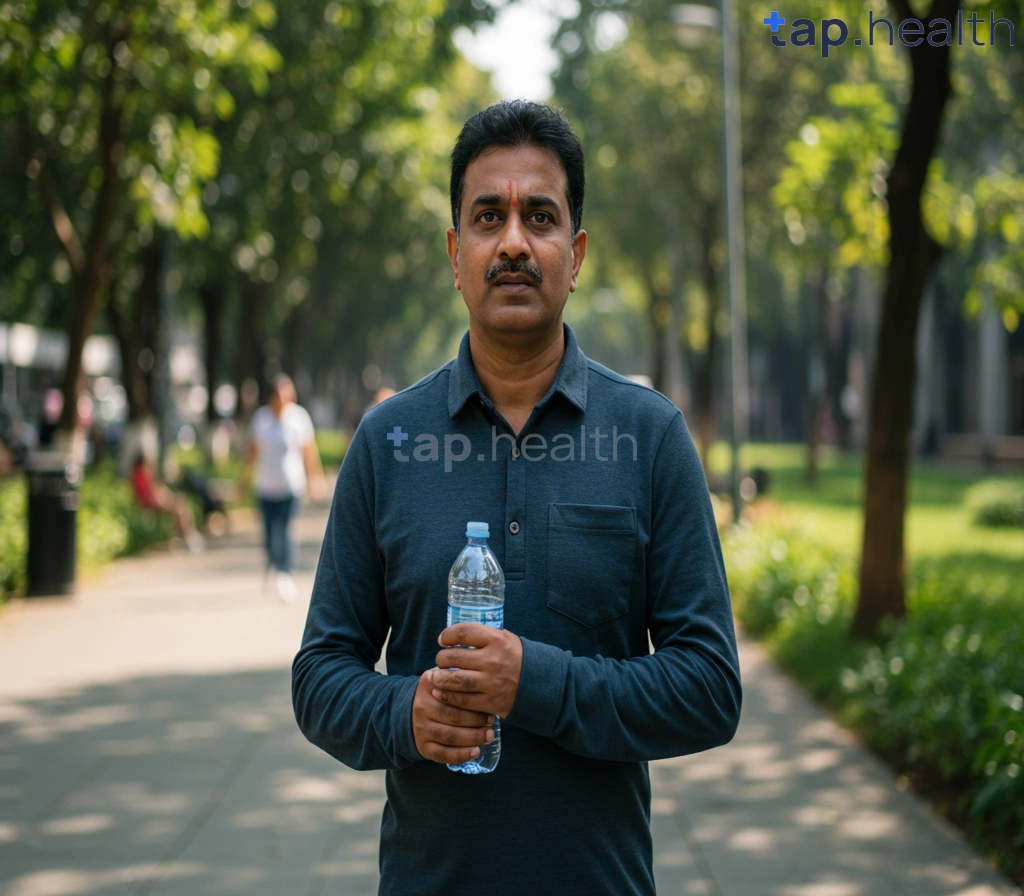Table of Contents
- Understanding Your Diabetes Diagnosis: What to Expect
- Living Well with Diabetes: A Guide to Better Management
- Navigating Your Diabetes Journey: Tips for Success
- Diabetes Diagnosis: Questions to Ask Your Doctor
- New Diabetes Diagnosis? Your First Steps to a Healthier Life
- Frequently Asked Questions
- References
Receiving a diabetes diagnosis can feel overwhelming, leaving you with more questions than answers. It’s a life-changing event, but it doesn’t have to be the end of the world. This blog is dedicated to helping you navigate this new chapter with confidence and clarity. Understanding your diabetes diagnosis: a breath of fresh air is our goal, providing practical advice, expert insights, and a supportive community to empower you to manage your condition effectively and live a fulfilling life. We’ll explore everything from managing blood sugar levels to understanding different treatment options, so you can take control of your health journey. Let’s embark on this journey together!
Understanding Your Diabetes Diagnosis: What to Expect
Receiving a diabetes diagnosis can feel overwhelming, especially in regions like India and other tropical countries where access to resources and support might vary. The statistics highlight the significant impact: 61% of people with diabetes are aged between 20-64 years, representing a large, active portion of the population; the remaining 39% are aged 65+. This data from the International Diabetes Federation underscores the widespread nature of the disease. Understanding what to expect after diagnosis is crucial for managing your health effectively.
Managing Your Diabetes in Hot Climates
Living in a tropical climate presents unique challenges for diabetes management. Heat and humidity can affect blood sugar levels, making it crucial to stay hydrated and monitor your glucose more frequently during hot weather. Adjusting your medication and diet accordingly, with the guidance of your doctor, is key. Consider scheduling appointments during cooler parts of the day to minimize discomfort.
Seeking Support and Resources
Finding reliable support is essential. Look for local diabetes support groups or online communities specifically catering to individuals in your region. Many hospitals and clinics offer diabetes education programs tailored to the specific needs and resources available in India and other tropical countries. These programs often provide invaluable insights into managing your condition effectively within your local context, including dietary adjustments suited to locally available foods. For those concerned about the aging process and its impact on diabetes management, Managing Diabetes as You Age: Challenges and Solutions offers valuable information.
Taking Control of Your Health
A diabetes diagnosis doesn’t have to define your life. With proactive management, including regular checkups, a balanced diet tailored to your region, consistent exercise, and a strong support system, you can lead a fulfilling life. Remember to discuss any concerns or questions with your healthcare provider, who can help you create a personalized management plan. Don’t hesitate to seek help; your health journey is a marathon, not a sprint. Recognizing the early signs can be crucial for timely intervention. Learn more about potential indicators by reading 10 Early Signs and Symptoms of Diabetes?
Living Well with Diabetes: A Guide to Better Management
Diabetes affects millions globally, with a staggering increase from 200 million in 1990 to 830 million in 2022. This significant rise, particularly impacting Indian and tropical countries, highlights the urgent need for effective diabetes management. Understanding your diagnosis is the first step towards a healthier life.
Managing Blood Sugar Levels
In hot and humid climates prevalent in many Indian and tropical regions, maintaining stable blood sugar levels becomes even more crucial. Dehydration, common in these areas, can significantly impact blood glucose. Prioritize hydration by drinking plenty of water throughout the day, especially during periods of intense heat. Regular monitoring using a glucometer, coupled with a balanced diet, is essential. Consider incorporating regional fruits and vegetables rich in fiber and antioxidants into your diet, such as mangoes, papaya, and leafy greens. For more practical tips, check out 10 Proven Tips for Effective Diabetes Management.
Lifestyle Adjustments for Better Health
Beyond diet, physical activity plays a vital role. Regular exercise, even short walks, can significantly improve insulin sensitivity. However, it’s crucial to be mindful of the heat and adjust your exercise routine accordingly, opting for early mornings or evenings when temperatures are more manageable. Prioritizing sleep is also vital, as sleep deprivation can negatively affect blood sugar regulation. Incorporating yoga and mindfulness techniques, popular in Indian culture, can further aid in stress management, a known contributor to elevated blood sugar levels.
Seeking Support and Resources
Living with diabetes doesn’t mean sacrificing quality of life. Connect with local diabetes support groups and healthcare professionals for personalized advice and guidance tailored to your specific needs and the climate you live in. Many resources are available to help you navigate your journey, empowering you to live a fulfilling life despite your diagnosis. Remember, proactive management is key to thriving with diabetes, especially in challenging climates. For a simple guide to effective management, see 10 Proven Tips to Effectively Manage Diabetes | Simple Guide.
Navigating Your Diabetes Journey: Tips for Success
Understanding Your Diagnosis
Receiving a diabetes diagnosis can feel overwhelming, especially in regions like India and other tropical countries where access to healthcare and information may be limited. The shocking statistic that 50% of diabetes cases worldwide remain undiagnosed (diabetesatlas.org) highlights the urgent need for awareness and proactive management. This is particularly crucial in areas with high rates of diabetes, often linked to lifestyle factors and genetic predispositions. Early detection and management are key to preventing serious complications.
Managing Your Diabetes in Tropical Climates
Living with diabetes in hot and humid climates presents unique challenges. Staying hydrated is paramount, especially during periods of intense heat. Consult your doctor about adjusting your medication and monitoring strategies during extreme temperatures. Dietary choices are also critical; focus on fresh, locally sourced fruits and vegetables that are readily available and easily incorporated into traditional meals. Regular exercise, even short walks in cooler parts of the day, is essential but always prioritize safety and avoid overexertion in the heat. For more tips on managing your diabetes effectively, check out our article on 5 Common Mistakes People Make in Managing Diabetes.
Seeking Support and Resources
Connecting with support groups and healthcare professionals familiar with the specific needs of your region is crucial. Many hospitals and community centers offer diabetes education programs and resources tailored to the local context. Don’t hesitate to reach out for help; proactive management involves a team effort. Remember, living with diabetes doesn’t mean sacrificing your quality of life; with proper management and support, you can lead a fulfilling and healthy life. Contact your local diabetes clinic or community health worker to learn more about available resources and support networks. Planning a trip? Read our blog on Traveling with Diabetes: Essential Tips for a Safe & Healthy Journey for valuable advice.
Diabetes Diagnosis: Questions to Ask Your Doctor
Receiving a diabetes diagnosis can feel overwhelming, especially in regions like India and other tropical countries where access to healthcare and specific dietary information might be limited. It’s crucial to understand your condition and how to manage it effectively. To empower yourself, start by asking your doctor these key questions:
Understanding Your Type of Diabetes
First, clarify the specific type of diabetes you have – Type 1, Type 2, or gestational diabetes. Understanding your type will influence your treatment plan significantly. Ask about the long-term implications and how to prevent complications common in your region, such as diabetic neuropathy or retinopathy. Knowing your type is the first step in effective management. While many wonder if a virus or bacteria is the cause, it’s important to focus on management. You can learn more about the causes in our article: Is Diabetes Caused by a Virus or Bacteria?
Managing Blood Sugar Levels
Inquire about recommended blood sugar monitoring techniques and the frequency of testing. Discuss strategies for maintaining healthy blood sugar levels, including dietary adjustments. For example, ask your doctor about appropriate carbohydrate intake, which generally ranges from 45–60 grams per meal for many individuals with diabetes, though this can vary significantly based on individual needs and activity levels. Remember to emphasize your lifestyle and dietary habits specific to your region. This will help your doctor tailor advice to your context.
Lifestyle and Dietary Adaptations
Ask about the best dietary choices considering the readily available foods in your region. Discuss the impact of common spices and traditional foods on blood sugar levels. Inquire about the recommended exercise routine suitable for your climate and physical capabilities. Find out about local support groups or resources available in your area to help you navigate this journey. Don’t hesitate to ask about financial assistance programs if needed. Managing diabetes is a long-term commitment, and having the right support system is key. It’s also important to understand the relationship between diabetes and other health concerns. For example, learn more about the link between diabetes and cancer by reading our article: Does Diabetes Cause Cancer?
New Diabetes Diagnosis? Your First Steps to a Healthier Life
Receiving a diabetes diagnosis can feel overwhelming, especially in regions like India and other tropical countries where access to resources might be limited. But understanding your condition is the first step towards managing it effectively. Remember, you’re not alone. In the U.S., approximately 35 per 10,000 youths have a diagnosed case of diabetes, highlighting the global prevalence of this condition. This emphasizes the importance of seeking information and support. Learn more about diabetes statistics.
Understanding Your Type of Diabetes
It’s crucial to understand whether you have type 1 or type 2 diabetes, as management strategies differ. Type 1 diabetes often requires insulin therapy, while type 2 diabetes may be managed through lifestyle changes, medication, or a combination of both. In tropical climates, managing blood sugar levels becomes even more critical due to the potential impact of heat and humidity. Consult your doctor to determine the best course of action for your specific needs and situation.
Prioritizing Lifestyle Changes
Adopting a healthy lifestyle is paramount in managing diabetes, regardless of the type. This includes maintaining a balanced diet rich in fruits, vegetables, and whole grains, while limiting processed foods, sugary drinks, and unhealthy fats. Regular physical activity, even short walks, is crucial for managing blood sugar and weight. In many Indian and tropical countries, incorporating traditional practices like yoga or mindful walking can be particularly beneficial. For more information on how technology can assist in your diabetes management, check out How Can New Technological Advances Improve Diabetes Lifestyle?
Seeking Support and Resources
Connecting with support groups, both online and offline, can provide invaluable emotional and practical support. Many organizations offer diabetes education programs and resources specifically tailored to the needs of people in your region. Don’t hesitate to reach out for help. Early intervention and consistent management are key to living a long and healthy life with diabetes. Find a local doctor or diabetes specialist who can provide ongoing support and guidance. Remember that a Personalized Diabetes Control plan can significantly improve your health outcomes.
Frequently Asked Questions on diabetes
Q1. What is the most important thing I need to know about managing diabetes in a hot climate?
Managing diabetes effectively in hot climates like India requires a personalized plan. This includes understanding your diabetes type (Type 1 or 2), staying well-hydrated, adjusting medication as needed based on weather, and maintaining a balanced diet with local produce.
Q2. How can I adjust my diabetes management plan for the weather?
Extreme heat can affect blood sugar levels. Consult your doctor about adjusting medication dosages during hot weather. Pay close attention to your blood sugar levels and make necessary dietary changes. Prioritize hydration.
Q3. What kind of diet is recommended for managing diabetes in a tropical climate?
Focus on a balanced diet incorporating plenty of fresh, local produce. Work with a doctor or registered dietitian to create a meal plan that suits your needs and cultural preferences. Remember portion control.
Q4. Where can I find support and resources for managing my diabetes?
Many resources are available! Connect with local diabetes support groups, online communities, and, most importantly, your healthcare team. They can provide guidance and answer your questions.
Q5. What are some common misconceptions about diabetes management that I should be aware of?
A common misconception is that diabetes management is the same for everyone. It’s crucial to remember that your plan should be personalized to your specific needs, considering factors like climate, diet, and activity levels. Regular check-ups with your doctor are key.
References
- A Practical Guide to Integrated Type 2 Diabetes Care: https://www.hse.ie/eng/services/list/2/primarycare/east-coast-diabetes-service/management-of-type-2-diabetes/diabetes-and-pregnancy/icgp-guide-to-integrated-type-2.pdf
- What is Diabetes: https://www.medschool.lsuhsc.edu/genetics/docs/DIABETES.pdf




